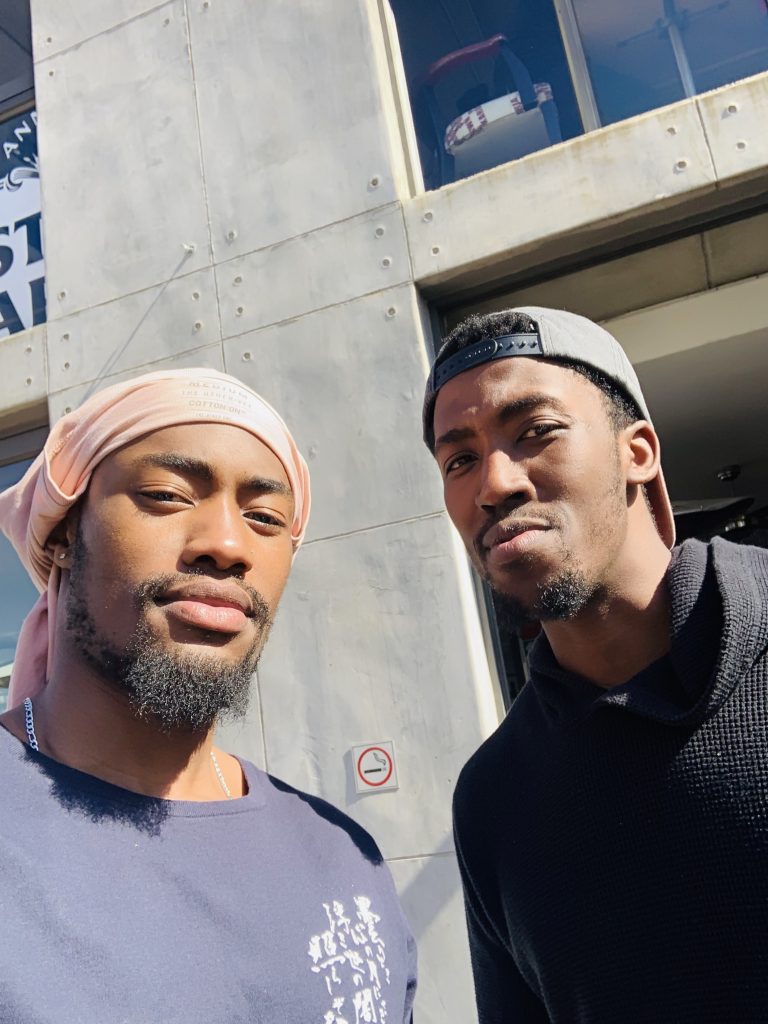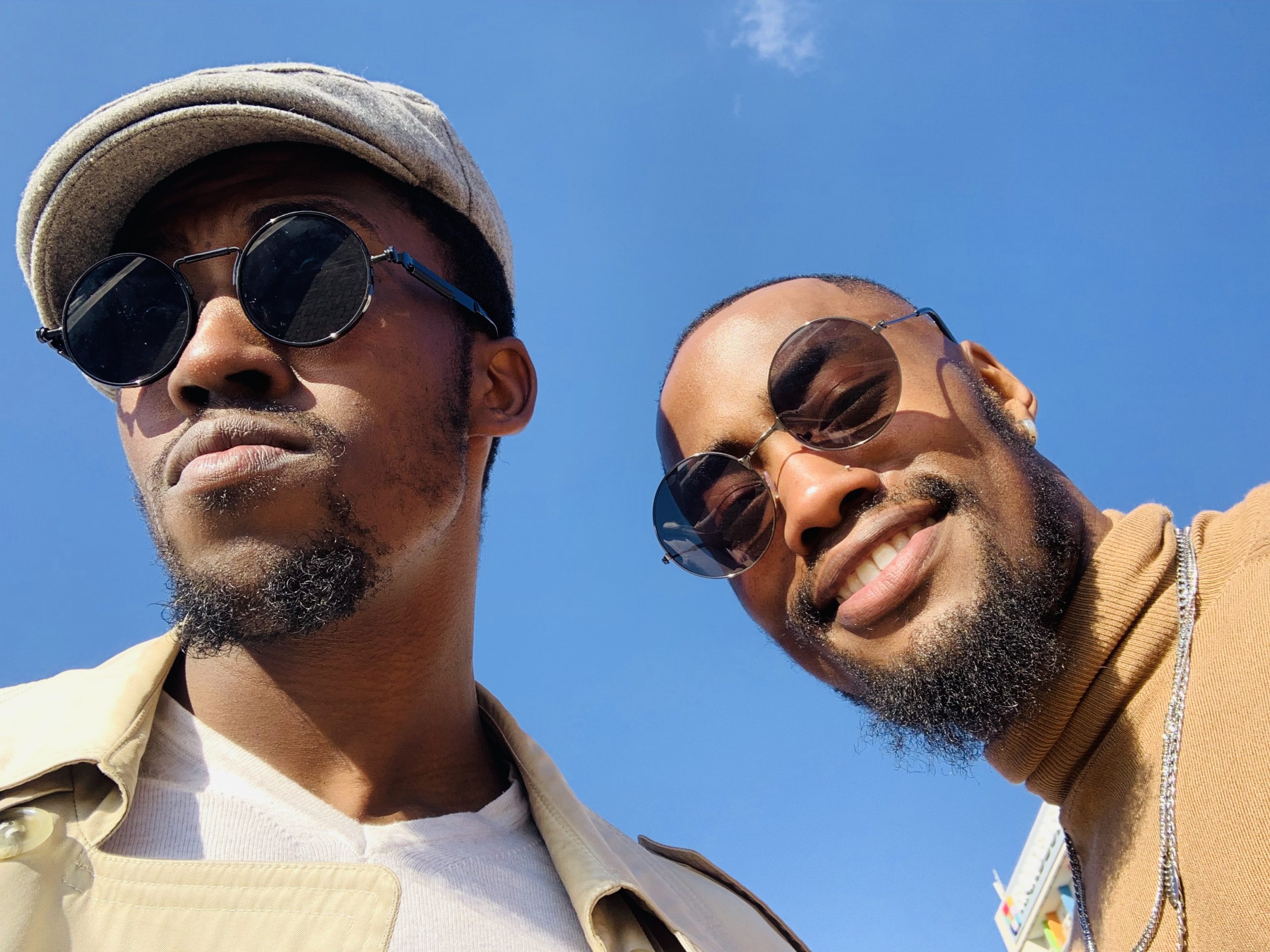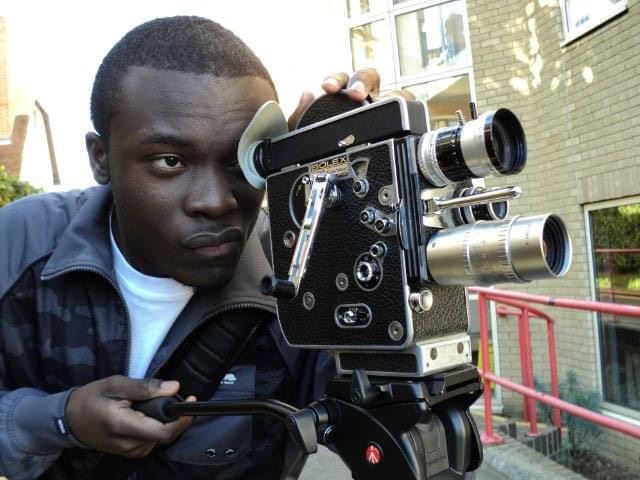Tell us a little about yourself…
Keketso:
Goodness, where to start – maybe the basics, my name is Keketso Moteetee and I’m an Artist. I was going to say ‘window’ or ‘magnifying glass’ but I think Artist is an appropriate enough synonym.
I suppose I’d use titles like those because that’s what I’d say all artists are; portals to inner perspectives of the world around and within oneself … not to get too deep but what are any of us except for the result of our surroundings, upbringing, and individual understandings. Artists are those of us who – unlike the many – can absorb then transfigure those things into new energy for all the world to experience and reflect on the state of our collective realities … I got carried away, let me start again. My favourite colour is green.
Thivhu:
Hi, my name is Thivhusiwi Mamaila, age 29, and I was Born in Venda, Thohoyandou .
From my earliest days I always knew I was a creative. I always had a love for art and using my hands, I started with making small sculptures with clay or prestick, to eventually picking up a pencil and drawing and learning about art and artists in high school, to using my hands in the digital age, creating stories through Animation and Film.
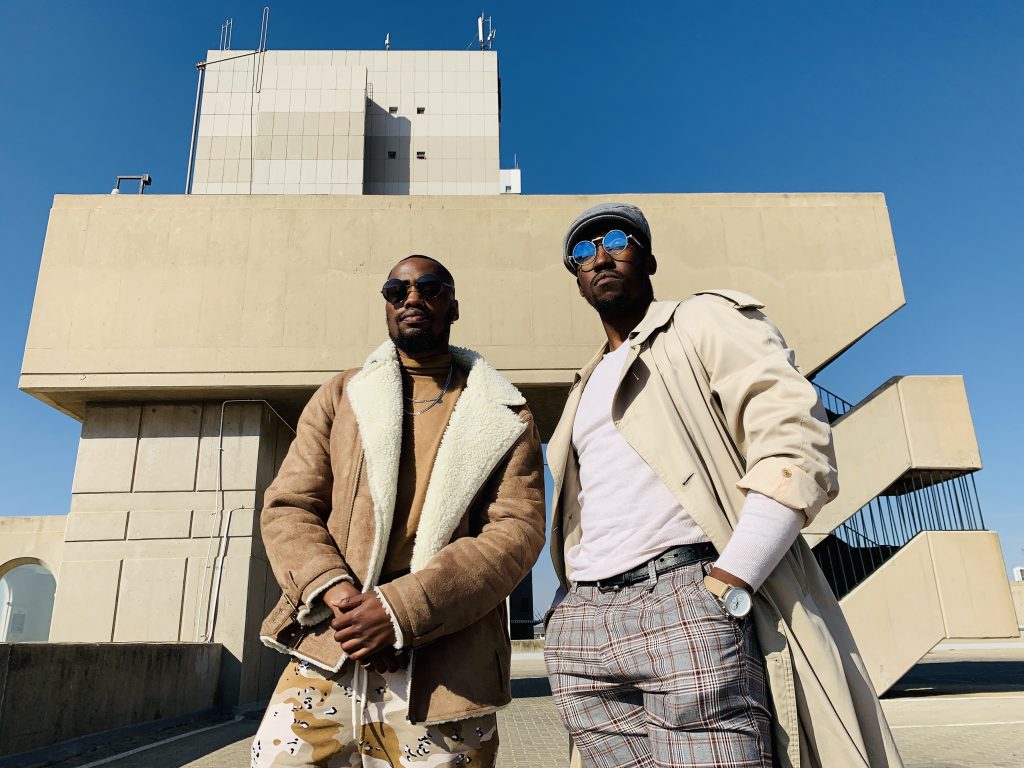
What inspired you to become a filmmaker, and how has your heritage influenced your work?
Keketso:
As a very timid and socially awkward kid I found my escape in drawing – little did I know that was really me getting into storytelling. It went from drawing full on comic books with intricate plots that grew more complicated the older and more experienced I got. Essentially, I was journaling through the visuals.
As I matured I diversified – my mediums of expressing myself grew with me: music, script writing, animation, and eventually filmmaking. A lot later on in my journey I noticed the major void in all my branches of expression … the lack of not only representation, but more notably – the lack of perspective.
On an international level, South Africa, in fact all of Africa, is always seen as one big village, or tribe, or township … I’m not a fan. We’re so much more than that, and from what I’ve seen thus far, we’re only perpetuating the stereotype. We should definitely be proud of our heritage – but that doesn’t mean staying stagnant with our storytelling. With all this untapped source material we’re sitting on a goldmine, and it’s up to us to start digging.
Thivhu:
To be honest, my heritage didn’t inspire my filmmaking journey; it’s actually a bit of the opposite. I grew up as the black sheep of the family because of my interests and how different they were from my family members and other kids. Having grown up in Joburg and being exposed to American and Japanese cartoons, they sparked a creative fire in me that would never go out.
Even though my family thought it would be better to pursue academic paths, as that’s all my family knew—creatives didn’t thrive back then like they do in today’s age—it was the safest bet to be a doctor, accountant and lawyer. However, no matter how hard I tried with maths, accounting, or science, my highest marks were always in art. Being a creative was a part of me, but my surroundings and family at the time didn’t know where that would get me.
However, over time, as I continued to see where it would lead me, it opened doors that I couldn’t even imagine back then. To see what I’ve been able to achieve now, thanks to pursuing my natural talents despite not understanding how to achieve success through my creativity and storytelling, is truly a blessing.
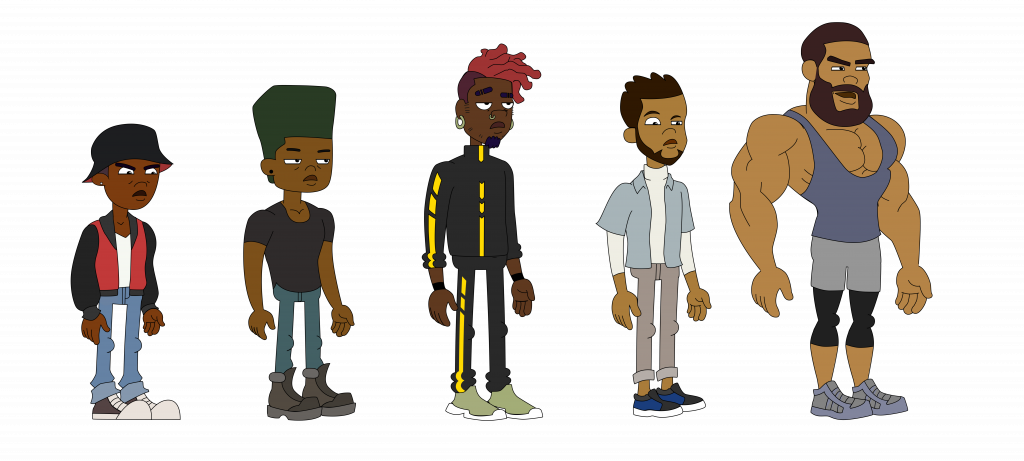
What challenges have you faced as a filmmaker of African origin, and how did you overcome them?
Keketso:
Myself. But it’s a lot deeper than that. Because that self doubt stemmed from my African heritage/lineage … I’m black … and we’re not about to act like that’s not a daily hurdle, even in this country where we’re the majority. … I was born in 1995, those born in my year were dubbed the “Born Free’s” because we’d never experienced the chains of Apartheid … but let’s be real, Apartheid only ended physically.
The damage done on the African’s psyche, self esteem, and self respect was so severe and profound, that it echoes to this very day. I was very fortunate to grow up around people of other races but at times I felt like I was lesser than them … that I wasn’t as good as them, because of the way I look. TV, adverts, movies – none of them looked or talked like me – because I wasn’t the standard for greatness. Likely what led to me feeling timid in the first place. That feeling didn’t just vanish, that shy nature held me back in so many different areas in my life, even in what I was most confident in – my art. I had to overcome this generational racial trauma and defeated/crippled mindset in order to look up … to get up, and believe it could be different. A lot of people, especially those older than me are still in that rut. But once I took off those mental chains, I learned that I can fly.
Thivhu:
The biggest challenge I’ve faced as an African filmmaker and storyteller has always been: how do you prove to people with resources and life-changing connections that, in a sea of people trying to tell their story, what makes my story worth telling? Why should anyone give me a chance? What I’ve learned is that the only way to overcome that challenge is to tell your story anyway, whether they listen or fail to listen.
Just create what your heart wants to create because eventually the right people will listen, and eventually the correct doors that were meant for you will open. The best part about just telling your story and letting your work speak for itself is that you no longer have to chase people or wait for them to give you their time of day. You start to attract people to your own light and your own stories by being your authentic self.
What advice would you give to aspiring African filmmakers aiming to share their stories on a global stage?
Keketso:
Start … You’re already overthinking it. How’re you going to progress if you don’t try? And trust me, the first piece of work you do is going to be garbage! … HOT GARBAGE! but one day, if you keep at it, you’ll frame that first piece of garbage in the highest place because through it – your journey finally began. And P.S. … no one knows what they’re doing, even those on top … you can’t go wrong!
Thivhu:
My advice to aspiring filmmakers is to find out ‘who you are’ before they start telling stories, but most importantly, know ‘who you want to be’ as well. I feel like the best storytellers in all forms of media have lived through many life experiences, but with a clear vision of who they ultimately wanted to be, they did the things and spoke to the people that would eventually lead them to who they are today.
But if you still don’t know who you are and where you want to be, you will never know how to get there.
